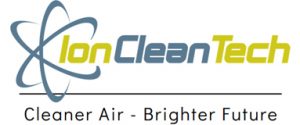-
Workshop 3
Bioaerosols and nanoaerosols: interdisciplinary approaches in microbiology
Workshop 3
Workshop 3 presents the methodology, part of the results, and expected impacts of the project IonCleanTech, investigating the removal of microorganisms and other polluting particles from the indoor air by ionization. Indoor air pollution is considered to be one of the major threats to the public health. Bioaerosols include fungi, bacteria, archaea, viruses, allergens, toxins, and resistance genes – not only that they cause rapid spread of respiratory infections, but also trigger chronic diseases and other health problems. Other forms of air pollution and climate changes are both in favor of increased air transmission of bioaerosols. The IonCleanTech project strives to define optimized conditions for pollutant removal by directed streams of small air ions, and to develop products which efficiently deliver the ions, in appropriate concentrations and with optimal polarity ratios, to the breathing zone. The project is led by IPB and carried out in collaboration with the Faculty of Medicine and Faculty of Veterinary Medicine of the University of Belgrade.
Project: Elimination of respirable airborne particles, microplastics, microorganisms, and VOCs by ionization of indoor air and filtration systems: comprehensive investigation for reliable technological answers

Acronym: IonCleanTech
Grant number: 5661
Funding: Serbian Science Fund - Green Program of Cooperation between Science and Industry
CHAIRS
Predrag Kolarz
Institute of Physics Belgrade, Serbia
Irena Aranđelović
Faculty of Medicine, University of Belgrade, Serbia
INVITED SPEAKERS
Predrag Kolarž
Institute of Physics Belgrade, Serbia
Anđelija Ilić
Institute of Physics Belgrade, Serbia
Irena Aranđelović
Faculty of Medicine, University of Belgrade, Serbia
Mira Aničić Urošević
Institute of Physics Belgrade, Serbia
Andrea Radalj
Faculty of Veterinary Medicine, Belgrade
Marko Janković
Faculty of Medicine, Belgrade
Stefan Mijatović
Faculty of Medicine Belgrade, Serbia
Jelena Trajković
Institute of Physics Belgrade, Serbia
PROGRAM - MONDAY May 19th
| Workshop 3: Bioaerosols and nanoaerosols: interdisciplinary approaches in microbiology | ||
| 11.20 – 11.35 | Introductory talk about the IonCleanTech project and about this workshop | Prof. dr Irena Aranđelović, MFUB |
| 11.35 – 11.55 | Raising importance of the prevention of transmission of airborne biological matter in indoor air – threats posed by bioaerosols | Prof. dr Irena Aranđelović, MFUB |
| 11.55 – 12.10 | Respiratory infections of viral etiology in immunosuppressed persons | Assist. dr Marko Janković, MFUB |
| 12.10 – 12.25 | Allergies of the respiratory tract: fungi as the neglected allergens | Assist. dr Stefan Mijatović, MFUB |
| 12.25 – 14.15 | Lunch break | |
| 14.15 – 14.30 | The lung microbiome – pandemic potential in the era of antimicrobial resistance | Prof. dr Irena Aranđelović, MFUB |
| 14.30 – 14.45 | Animal respiratory viruses with the zoonotic potential | Doc. dr Andrea Radalj, FVM |
| 14.45 – 15.05 | Microplastics in the environment: ecological and medical aspects | dr Mira Aničić Urošević, principal research fellow, IPB |
| 15.05 – 15.25 | Characterization of microplastics using spectroscopic and digital image analyses | dr Anđelija Ilić, principal research fellow, IPB |
| 15.25 – 15.45 | Experimental methods for investigation of ion–aerosol interaction | dr Predrag Kolarž, principal research fellow, IPB |
| 15.45 – 16.00 | Coffee break | |
| 16.00 – 16.20 | Carbon–fiber and other ionizer types in combating airborne pathogens – a review | Jelena Trajković, research assistant, IPB |
| 16.20 – 16.40 | Performance enhancement of HVAC filters by unipolar ionization | dr Anđelija Ilić, principal research fellow, IPB |
| 16.40 – 17.00 | Removal and inactivation of bacteria and fungi by ionization / Workshop conclusions | dr Predrag Kolarž, principal research fellow, IPB |
